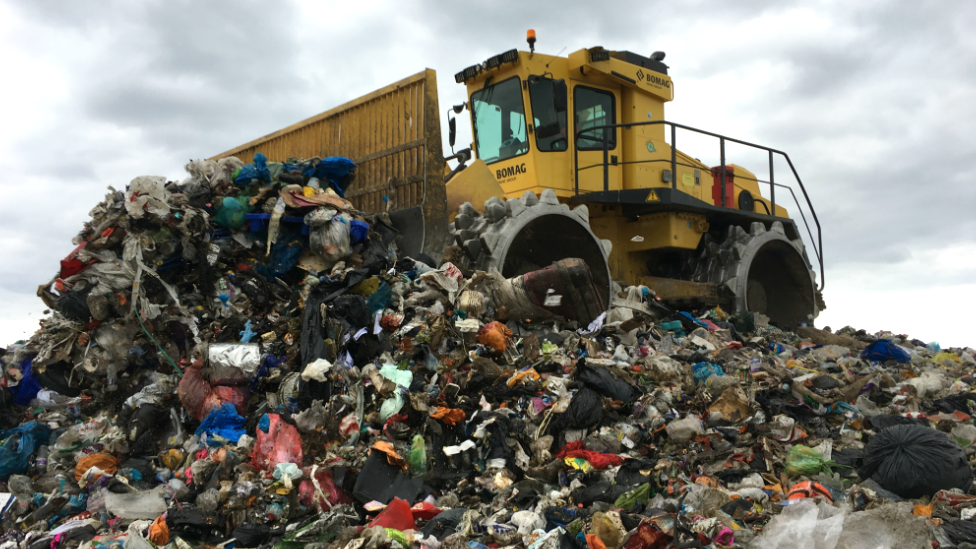Surrey family fears contaminated land caused cancer death
- Published
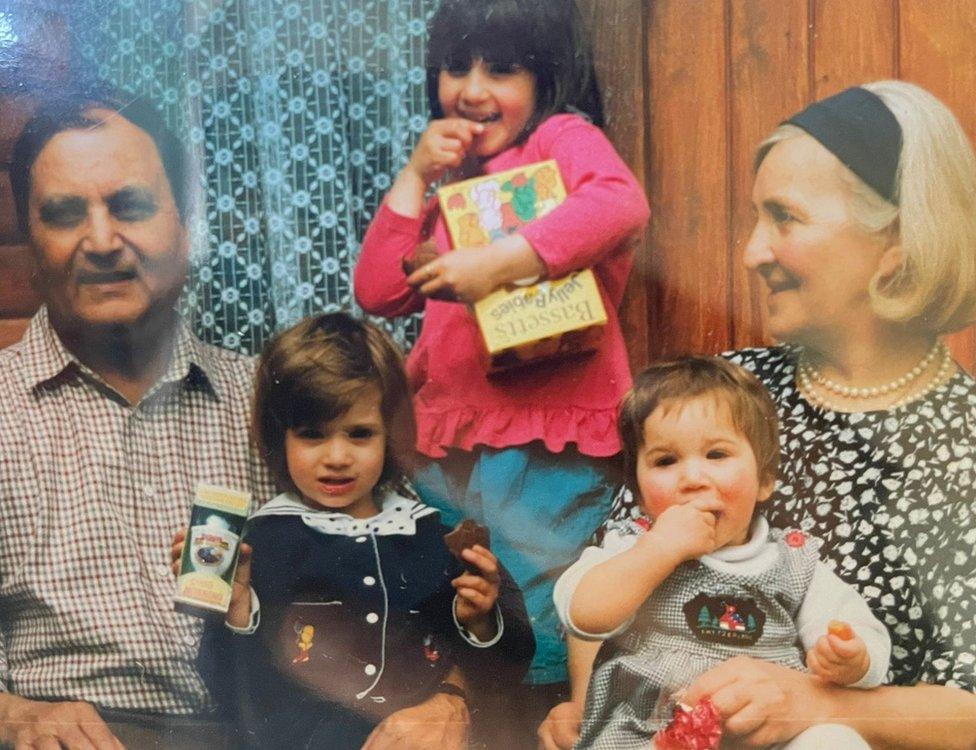
Syed Haider, photographed with grandchildren and wife Giuseppina, died in 2012
A woman who lost her father to cancer has raised concerns about landfill in Surrey and whether contaminants could be linked to his death.
Michele Haider raised concerns with Runnymede council in 2007, before her father Syed Haider died in 2012.
He had an allotment in Chertsey that closed in 2003 due to contamination.
Runnymede council said inquiries took place and allotment holders were contacted at the time, with people advised not to eat the produce.
Mrs Haider said her family had first-hand experience of landfill in the area, because they had lived at Thorpe Lea.
'Black viscous mud'
That area, close to Chertsey and the M3/M25 junction and not far from Heathrow, had seen a landfill experiment in flooded, worked-out gravel pits in the 1950s. One pit remained a dump into the 1990s.
Mrs Haider, who lived there from the 70s to the 90s, remembers the pits as "ugly, chained up and locked up and even as kids you wouldn't want to go exploring there".
She said the family went walking, but returned to find "black viscous mud" on their boots that never dried.
Her parents later moved to Mead Lane, Chertsey, not far from the allotments where the family grew radicchio, French beans and runner beans and gathered blackberries growing wild.
Mr Haider pulled carrots from the ground and washed them to eat there. His wife, Giuseppina, cooked the produce and made preserves and the family lived off the land. His daughter made organic baby food. Now, fearing it was contaminated, she said: "It makes me sad."
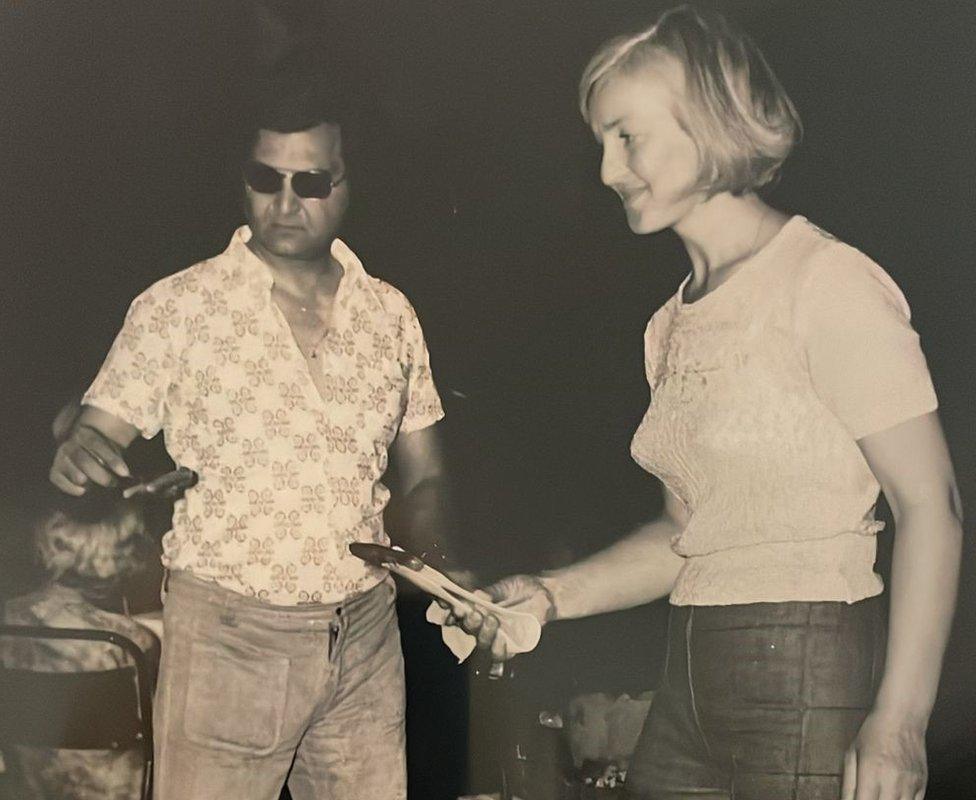
Syed and Giuseppina Haider, seen at a barbecue in the 1970s, loved cooking and sharing food with others
The allotments they farmed from 1996 to 2003 were at Painesfield in Eastworth Road and at Beomonds in Heriot Road. Both sites closed in 2003. Painesfield closed for redevelopment, but Beomonds closed after contamination was found.
In 2004, Mrs Haider and her mother developed an underactive thyroid. Mrs Haider's son developed the condition later. Syed Haider was diagnosed with the blood cancer, myelodysplasia.
Mrs Haider made a freedom of information request in 2007 amid concerns for the family's health. She received several reports but said information was "buried in scientific language".
She wrote in the request: "I would like to know more about the contamination as it may have had an impact on the health of my father and other members of our family."
Runnymede council has provided all the reports it still holds to the BBC.
Documents showed vegetables grown at Beomonds were contaminated with heavy metals and the source was a pond that had been filled in and remains fenced-off.
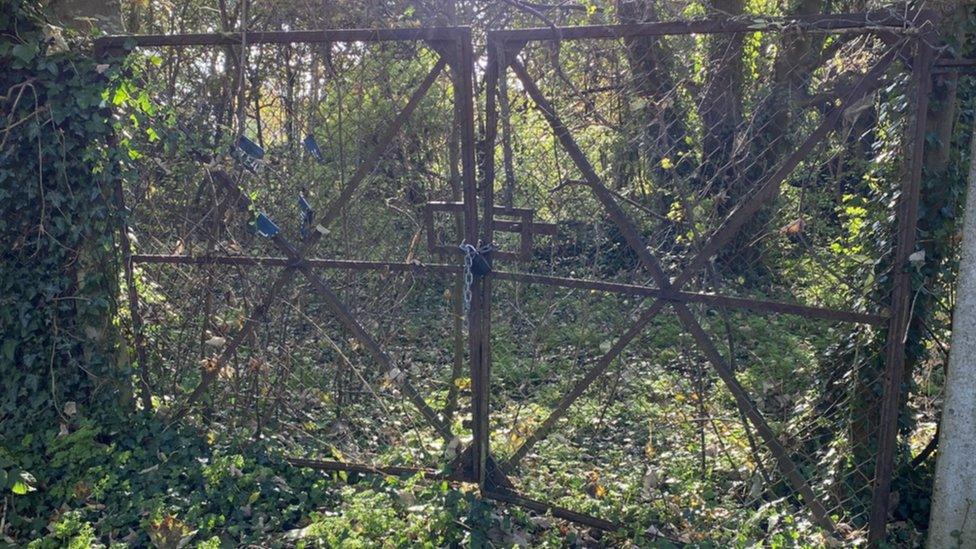
The pond area remains fenced-off at the former allotments site
A report in 2003 said no metals detected exceeded the critical concentration at which plant toxicity effects become apparent, but metals were accumulative in the human body and consumption of food with higher than normal metal levels posed a risk.
Soil samples contained arsenic, cadmium, copper, nickel, lead, zinc and polycyclic aromatic hydrocarbons (PAHs) which have been linked to cancer, external.
Glass bottles, ceramics, coal fragments, ash and clinker were thought to be filling material for the pond.
Lead in water samples exceeded drinking water standards.
The report also looked at leachates - contaminated water from waste disposal sites. It found it was highly likely leached contaminants could move during annual flooding and spread across the land.
A further document looked at questions that might arise. It said many factors affected health and "it may be impossible" to determine whether anyone who had eaten the vegetables was at increased risk.
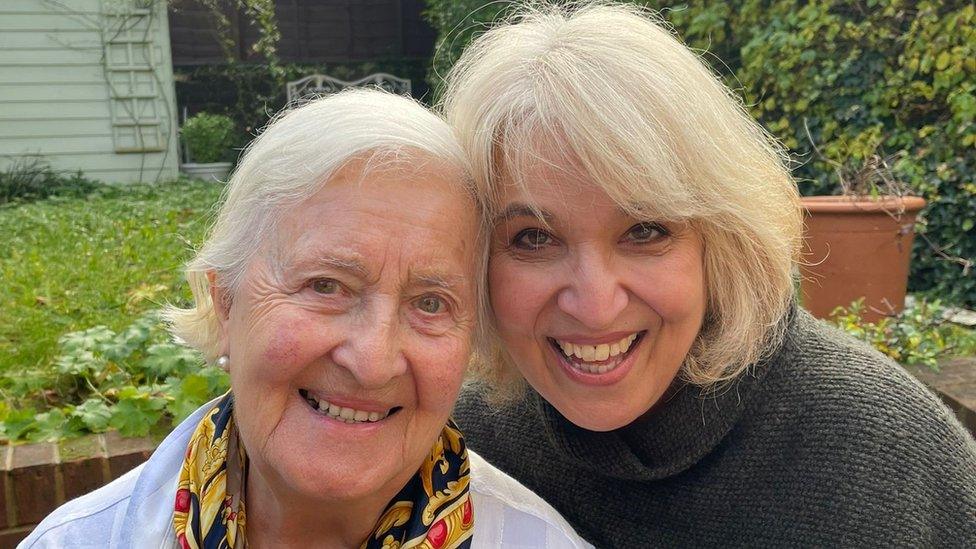
Michele Haider, seen with her mother, raised concerns about the effects on the family's health in 2007
A council spokesman said: "The decision was made to stop using the land for the growing of vegetables but to allow the land to be used as an informal public open space."
He added: "Groundwater investigations were carried out at Beomonds to assess groundwater risk from the infilled pit area, [the] outcome was a conclusion of no risk."
Mrs Haider said she requested an inquest after her father's death, but a post-mortem found 78-year-old Mr Haider died from heart disease and no inquest was held.
She said questions resurfaced after Zane Gbangbola's death during flooding of the River Thames in 2014. Zane's parents said their seven-year-old son was killed by toxic gas washed out of landfill.
"I felt frightened," she said. "My father was elderly when he died, but this was a little boy and I felt it had happened again."
Ten years on, she wants accountability.
"People know in Chertsey things were buried in Chertsey. There will be another flood and God knows what is buried there," she said.
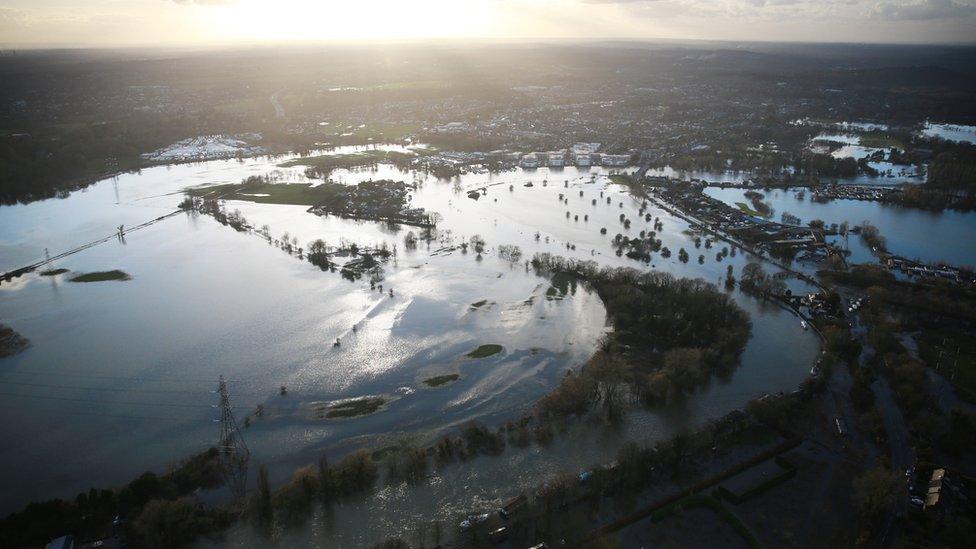
Mrs Haider said her fears resurfaced after the Thames floods in 2014 when Zane Gbangbola died

Follow BBC South East on Facebook, external, on X, external, and on Instagram, external. Send your story ideas to southeasttoday@bbc.co.uk, external.
Related topics
- Published20 June 2017
